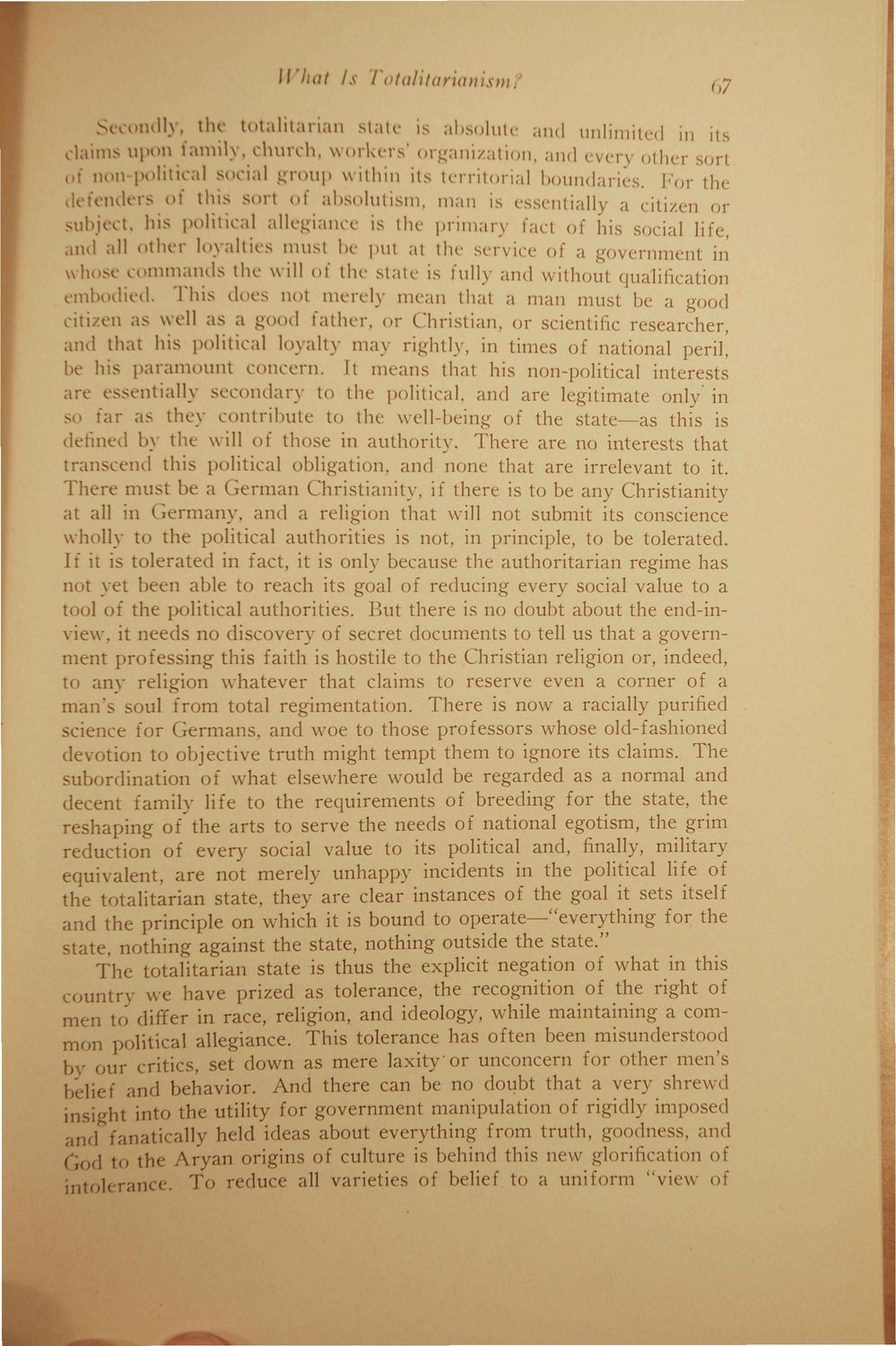| |
| |
Caption: Convocation - 1942 Winter-Spring
This is a reduced-resolution page image for fast online browsing.

EXTRACTED TEXT FROM PAGE:
What Is Totalitarianism? (j Secondly, the totalitarian state is absolute and unlimited in its claims upon family, church, workers' organization, and every other sort of non-political social group within its territorial boundaries. For the defenders of this son of absolutism, man is essentially a citizen or subject, his political allegiance is the primary fact of his social life nnl all other loyalties must U- put at tin- service of a government in whose commands the will of the state is fully and without qualification embodied. This does not merely mean that a man must he a good citizen as well as a good father, or Christian, or scientific researcher, and that his political loyalty may rightly, in times of national peril, be his paramount concern. It means that his non-political interests ire essentially secondary to the political, and are legitimate only" in so far as they contribute to the well-being of the state—as this is defined by the will of those in authority. There are no interests that transcend this political obligation, and none that are irrelevant to it. There must be a German Christianity, if there is to be any Christianity at all in Germany, and a religion that will not submit its conscience wholly to the political authorities is not, in principle, to be tolerated. If it is tolerated in fact, it is only because the authoritarian regime has not yet been able to reach its goal of reducing every social value to a tool of the political authorities. But there is no doubt about the end-inview. it needs no discovery of secret documents to tell us that a government professing this faith is hostile to the Christian religion or, indeed, to any religion whatever that claims to reserve even a corner of a man's soul from total regimentation. There is now a racially purified cience for Germans, and woe to those professors whose old-fashioned devotion to objective truth might tempt them to ignore its claims. T h e subordination of what elsewhere would be regarded as a normal and decent family life to the requirements of breeding for the state, the reshaping o f ' t h e arts to serve the needs of national egotism, the grim reduction of every social value to its political and, finally, military equivalent, are not merely unhappy incidents in the political life of the totalitarian state, they are clear instances of the goal it sets itself and the principle on which it is bound to operate—"everything for the state, nothing against the state, nothing outside the state." T h e totalitarian state is thus the explicit negation of what in this country we have prized as tolerance, the recognition of the right of men to' differ in race, religion, and ideology, while maintaining a common political allegiance. This tolerance has often been misunderstood by our critics, set down as mere l a x i t y or unconcern for other men's belief and behavior. And there can be no doubt that a very shrewd insight into the utility for government manipulation of rigidly imposed and fanatically held ideas about everything from truth, goodness, and God to the A r y a n origins of culture is behind this new glorification of intolerance. T o reduce all varieties of belief to a uniform "view o\ -
| |